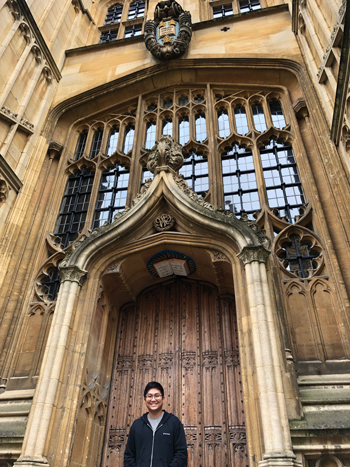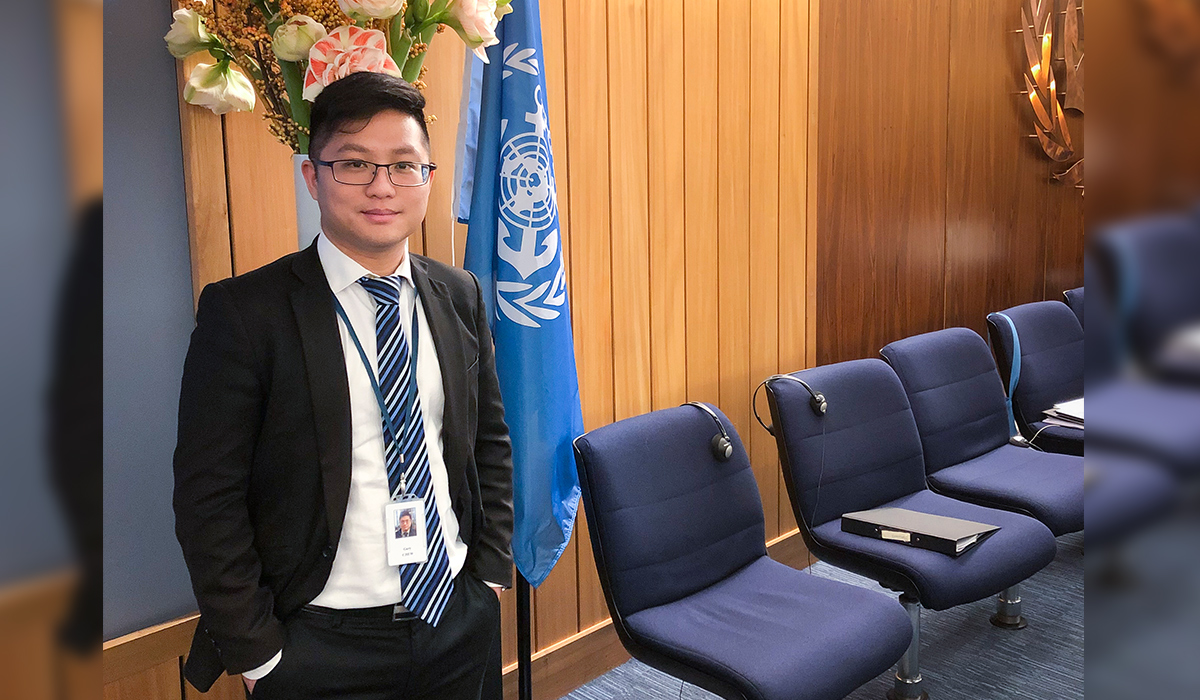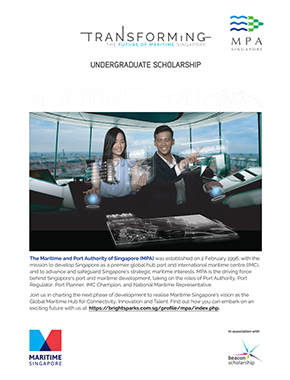Gary Chew is currently seconded to the International Maritime Organisation (IMO) for two years under its Junior Professional Officer Programme. He is an MPA Undergraduate Scholar and holds a Bachelor of Chemical Engineering from the National University of Singapore.
O ne may easily assume that by virtue of working at the Maritime and Port of Authority of Singapore (MPA), you have an affinity with the sea. But for MPA’s officer Gary Chew, it wasn’t a passion at first sight, so to speak.
“I would be lying if I told you that I was passionate about the maritime industry from the get-go. Rather, it was a slow build-up across a span of time,” tells Gary.
“As with any fresh graduate, I started enthusiastically with a strong desire to learn. At that time, I had little knowledge of the industry. With the opportunity to take on different portfolios and participate in interesting projects, my interest in the industry grew and somewhere along the way, the passion kindled and grew.”
MPA’s mission is to develop Singapore as a premier global hub port and international maritime centre, and to advance and safeguard Singapore’s strategic maritime interests. It is the driving force in support of Singapore’s vision to be a global maritime hub for connectivity, innovation and talent.

His work at MPA brings him to places. Here, Gary stands in front of the Sheldonian Theatre in Oxford, United Kingdom.
A Fruitful Secondment
Working at MPA for seven years, Gary is currently seconded to the International Maritime Organisation (IMO), based in London, for two years under the Junior Professional Officer Programme.
“I am now in the Marine Environment Division, Biosafety Team. My main role is to provide secretariat support for biosafety issues, including processing documents submitted to the Marine Environment Protection Committee (MPEC) and Sub- Committee on Pollution Prevention and Response (PPR), preparing briefs for the Secretary-General as well as Committee and Sub-Committee Chair. I also represent IMO on various missions.” explains Gary.
He elaborates that his team covers the International Convention for the Control and Management of Ships’ Ballast Water Management and Sediments, which regulates the transfer and introduction of harmful aquatic organisms, pathogens and invasive aquatic species through ships’ ballast water, as well as the International Convention on the Control of Harmful Anti-Fouling Systems on Ships which regulates the use of toxic anti-fouling systems on board ships.
“Further to biosafety, I was also given the opportunity to handle other agenda items, including the carriage of chemicals in bulk, marine plastics, the IMO 2020 sulphur cap and greenhouse gas emissions. These opportunities provided a well-rounded understanding of the work being done by MEPC and PPR.”
Gary says that his current stint at IMO is an exciting opportunity that he has embraced, and he looks forward to learning more about industry-specific best practices and policies.
Progressive Development
As an undergraduate, Gary clinched the MPA Undergraduate Scholarship, so he was able to be fully focused on his studies and experience overseas exchange programmes which were highly valuable and insightful. He noted that he might have had to forgo these due to financial considerations. The scholarship also offered him a nine-week internship at MPA to provide him with a better understanding of the role it plays in Singapore’s economic development.
Gary speaks about his more recent progression and personal milestones within the organisation since returning from his studies.
“I was rotated to several departments where I was exposed to the diverse work within the organisation. From being in the Ops Policy Unit, the Ships Regulation Department and the opportunity to be seconded to the IMO, the knowledge gained in port matters as well as international shipping regulations have been invaluable to me,” Gary says.
A few notable achievements that Gary has accomplished with his team were the Safety@Sea Campaign and the development of a 24/7 hotline service, both of which are significant because of the challenges involved and their impact to the industry.
He concludes, “Knowing for a fact that the work you do has a far-reaching impact on the entire industry, as well as positively impacting the environment, makes it worth all the while.”


